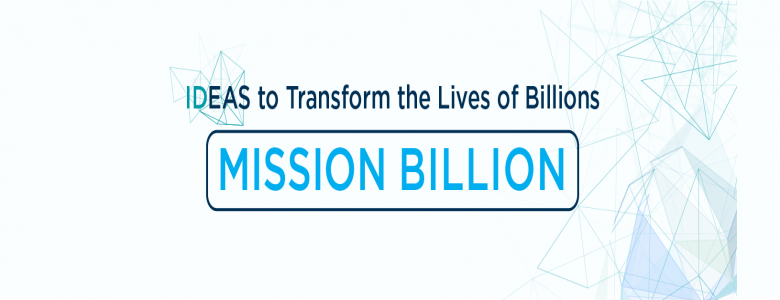WURI West Africa Prize Resources
What are the gaps and challenges in social protection coverage?
- The informal sector challenge: Changes in household structure, as well as the migration of workers to urban areas for jobs, are narrowing and straining social safety nets. Persistent worker informality is around 80 percent in Sub-Saharan Africa. As social insurance still largely relies on formal employment contracts, most informal workers lack social protection. In low-income countries, social insurance only covers 2 percent of people in the poorest quintile. This represents distinct issues in the provision of social protection. For example, pensions which are built around savings from a stable employment contract and a fixed point of retirement are neither affordable for the informal sector nor designed to its needs.
- The “missing middle”: There is a need to develop and bring to scale schemes to significantly contribute to the shock responsiveness of social protection for the “missing middle” — those who are not-poor enough to be eligible for social safety nets benefits yet who are ineligible for formal social insurance schemes. Covering the “missing middle,” which remains vulnerable to economic shocks, through an innovative social insurance program would strengthen governments’ ability to extend coverage. This is especially useful in times of covariate shocks and would provide informal sector workers with short-term insurance (e.g., unemployment insurance even for those with irregular incomes). An increasing number of governments across the African continent are aiming to introduce social insurance programs which are targeted to the needs of the informal sector. Examples include Haba Haba and Mbao in Kenya, Ejo Heza LTSS in Rwanda, Micro Pension Plan in Nigeria, ECIS Project in Zambia.
- The “first mile” challenge: The “first-mile” challenge of social protection service delivery refers to the challenge of designing programs tailored to the needs of different individuals, registrants, or beneficiaries, especially when they are dispersed in remote or inaccessible areas with limited infrastructure. Sub-Saharan Africa continues to have limited access to broadband networks that provide internet and data services. World Bank Findex data shows that only 43 percent of people (aged 15+) in the region participate in the formal banking system, and only 21 percent have a mobile money account. In WURI’s service delivery-oriented conception, the foundational ID systems prioritize reaching and registering the most vulnerable populations. Thus, these most-difficult to reach populations become the “first-mile”.
- The regional challenge: In the ECOWAS region, 70 percent of people are mobile across borders. The ECOWAS Protocol Relating to Free Movement of Persons, Residence and Establishment allows people to travel, live and work in all 15 ECOWAS Member States. WURI will seek to facilitate access by informal workers to critical social protection across the region by creating foundational identification systems that will provide them with government-recognized identity credentials at zero cost. The WURI-financed systems will be inclusive of all persons in the territory of a country, irrespective of nationality, citizenship or legal status. The foundational ID uses a minimal set of attributes, such as biographic and biometric data, to uniquely and exclusively describe an individual, and provide them a unique identity credential that proves that a person is who they claim to be.
HOW IS THE WORLD BANK TAKING ACTION?
The West Africa Unique Identification for Regional Integration and Inclusion (WURI) program is a US$395.1m, 10-year World Bank International Development Association (IDA) operation to build foundational ID systems that are interoperable across Benin, Burkina Faso, Côte d’Ivoire, Guinea, Niger, and Togo. Through initiatives such as WURI, the World Bank is scaling up efforts to build digital platforms that improve the speed, reach, quality, and efficiency of social protection and public service delivery systems at the regional level.
HOW CAN YOU BE A PART OF THE CHANGE?
Globally, the nature of work is being upended—a change characterized by the rise of the gig economy and short-term digital work in advanced economies. But precarity has long been the norm in emerging economies, where delivering social insurance to informal sector workers has been a development challenge for decades. Today, social protection must be re-imagined everywhere to be less dependent on where or how a person is employed. If one technological advancement will make redundant many of the jobs which currently fund contributory social insurance, then it is fitting that other innovations might offer a solution.
You can help us change the status quo. We know that talented developers exist throughout the world, and especially in Africa where mobile and digital payments ecosystems are creating new opportunities to encourage small and steady contributions to savings accounts. Your solution can help us deliver social insurance that accounts for precarious, informal work across borders. These platforms could also be used to compensate for income loss in the event of a shock such as COVID-19. Together, your design features and ideas can prototype more locally tailored, open source solutions that are interoperable across countries in West Africa—pioneering a new model of delivering social insurance for the world.
ADDITIONAL RESOURCES
- The WURI Program: Press release and Project Appraisal Document for WURI Phase 2
- Inclusive social protection: Adapting social protection to the changing nature of work and extending social insurance to the informal sector (i.e. Following principles for informal sector pensions schemes)
- Social protection delivery systems: Foundational ID systems and social registries, integrated social information systems, and open source technologies in social protection systems as public goods; Developing regional, flexible benefits platforms in West Africa


